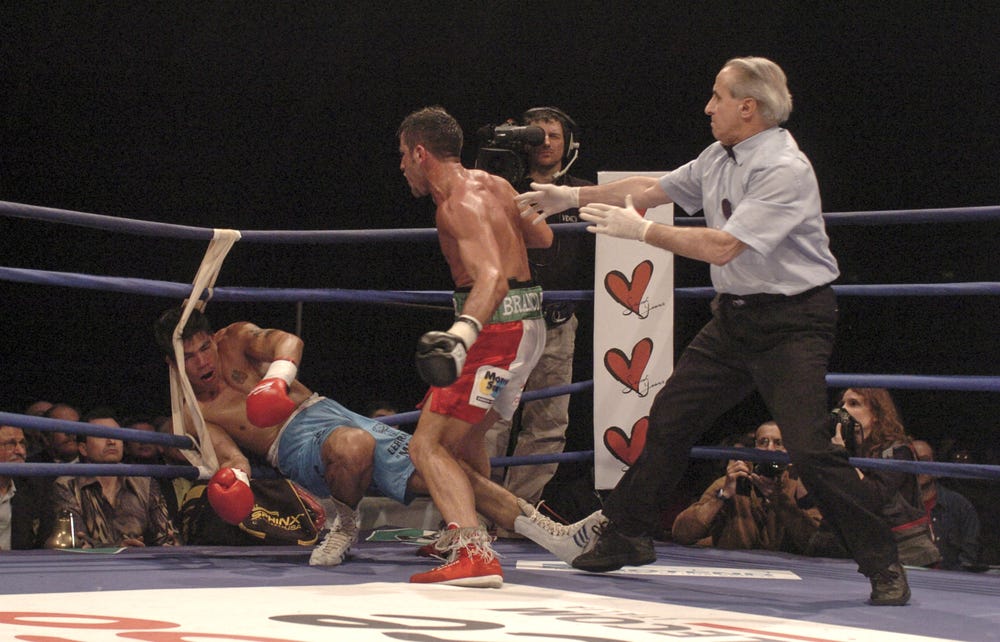NIESR PG report under attack
Problem gambling report draws criticism, Kindred’s Norway court loss, AGA’s campaign gathers momentum, White Paper views +More
Good morning. On today’s agenda:
Recent NIESR report on problem gambling labeled “fundamentally flawed”.
Kindred loses latest Norwegian court battle.
The AGA is notching up states for its illegal gambling campaign.
Swedish regulator approves a fresh batch of gaming supplier licenses.
UK White Paper perspectives sees CMS discuss the affordability consultation.
Naughty, naughty, very naughty.
Naughty NIESR
A report endorsed by the Gambling Commission has been described as “fundamentally flawed” by analysts at Regulus.
Speculate to accumulate: In coming to the conclusion that problem gambling cost the government £1.4bn a year, a recent report from the National Institute for Economic and Social Research (NIESR) used “highly speculative and unscientific methodologies”, said Dan Waugh from Regulus.
The analysis calculated that each person with a problem gambling classification cost the UK Treasury £3,400 a year.
But Regulus found that the report contained a “large number of factual and mathematical errors and unsubstantiated assertions”.
Baseless jump: Regulus pointed out that the largest component of NIESR’s estimate, representing 57% of its figure, relied on the “baseless assumption” that anyone who wins £500 over the course of a two-year period and is economically inactive due to ill health should be considered an ‘at-risk gambler’.
Waugh said NIESR also appears to “flip-flop” between claims of correlation and causality and provides multiple different estimates for the same cost items.
He noted, for instance, that the report provides four different stated or implied estimates for the cost of GP consultations associated with ‘problem gambling’.
Risk metrics: Documents released by the Commission and seen by C+M show that NIESR originally submitted very different preliminary findings in May last year, with its original estimate for the cost of problem gambling being £200m lower.
Also excised from the final report was a claim on the part of NIESR that there were likely to be “significant” economic benefits associated with ‘at-risk gambling’ and speculation that an increase in ‘at-risk gambling’ may result in “benefits to the economy”.
Said the original report: “While the cost of problem gambling is higher than previously thought, we do not find any excess fiscal cost for at-risk gamblers.”
“This suggests that at-risk gambling makes a positive contribution to the economy and has wider benefits by encouraging positive entrepreneurial risk taking.”
Background: The go-ahead for the £140,000 NIESR report was given in August 2021 with the aim of conducting a cost-benefit analysis of the licensed gambling industry in Great Britain.
Regulus said the project scope was changed twice – apparently without approval from the Gambling Commission – moving from a cost-benefit analysis to an assessment of “the costs of problem gambling”, with the explicit ambition of influencing regulatory policies.
What a waste: Speaking to C+M, Peter Hannibal, CEO at the Gambling Business Group, said that alongside the recent ‘10 Questions’ report from the Centre for Governance and Scrutiny, it shows how public money is being spent on “clearly misleading and prejudicial studies”.
“This is money that could have been invested in delivering frontline services to those in need of support,” he added.
He noted that the Commission “refuses to accept any responsibility” for these projects despite having directly approved them.
“If it is to achieve its aim in becoming an authoritative and trusted voice on gambling, it should start by coming clean on its role in funding these reports and publicly repudiate claims that are demonstrably false,” he said.
When C+M contacted the Commission with regard to the NIESR study, it commented that the GC “does not commission projects which utilize regulatory settlements and does not set research priorities”.
** SPONSOR’S MESSAGE** BettingJobs is the global leading recruitment solutions provider to the iGaming, Sports Betting and Lotteries sectors. Boasting a 20-year track record supporting the iGaming industry, and with a team of experts and world class knowledge, it’s no surprise BettingJobs is experiencing rapid growth with outstanding results. Does your company have plans to expand teams to cope with strong growth and demand?
Contact BettingJobs.com today where their dedicated team members will help you find exactly what you are looking for.
Kindred’s Norway loss
Kindred has lost the latest round in its long-standing fight in Norway.
Cease… and desist? The Court of Appeal has ruled in favor of the Norwegian gambling regulator saying it was correct to order Kindred to cease the marketing of online gambling into the country.
The court also ruled that Kindred’s Malta-based subsidiary Trannel must pay the regulator’s costs.
It supported all the regulator's arguments and found against Kindred on every point.
The Norwegian regulator was quoted as saying the body was “very satisfied” with the ruling.
“The fact that Trannel is not supported on a single point shows that the work we do to get illegal companies out of the Norwegian market is solid and well-established,” it added.
Get out and stay out: “Now we expect the company to withdraw completely from the Norwegian market.”
Background: In November the Norwegian gaming authority reinstated “coercive fines” against Trannel. The company had previously implemented changes to its offer, which it claimed were in line with NGA requirements.
These included changing the language on all sites from Norwegian to English, removing any Norwegian flags from websites and channels and discontinuing all advertising and marketing activities in Norwegian.
The regulator had previously initiated fines of NOK1.2m ($109,000) a day until Kindred ceased all Norwegian-facing activities.
Feds crackdown folly
The list of states signing up to the AGA’s campaign on illegal gambling is growing.
Adding Mass: The number of states that have signed on to the American Gaming Association’s campaign to crack down on illegal gambling is growing by the day, with Massachusetts the latest state to add its voice to the chorus.
The five members of the Massachusetts Gaming Commission sent a joint letter to Attorney General Merrick Garland, urging the DOJ to do more to prevent illegal offshore sites.
With Massachusetts, the list of states has grown to eight, including Colorado, Nevada, New Jersey, Michigan, Illinois, Louisiana and Mississippi.
“The many significant threats posed by offshore illegal gambling cannot be addressed by states alone and, therefore, require heightened federal attention and engagement,” the letter read.
“We strongly encourage the Department of Justice to prioritize investigation and prosecution of these offshore sites, and stand ready to provide any assistance that we can as state gaming regulators.”
A fool’s errand: The problem is, prosecuting offshore sites is a difficult – if not impossible – task, both in terms of enforcement and politically.
Richard Schuetz, who has the most expertise in these matters, penned a must-read column for anyone interested in why these efforts are being directed at the wrong agency and are unlikely to succeed.
Dear Regulators: Merrick Garland Is The Wrong Guy To Stamp Out Offshore Betting.
US notebook
A ‘Can’t Win’ hearing for Penn: The Massachusetts Gaming Commission will also have an adjudicatory hearing on the Barstool Sports’ controversial ‘Can’t Lose Parlay promotion.
Penn is likely to defend the wording, but the MGC is unlikely to be interested in the company’s arguments. The more reasonable goal for Penn is regulatory clarity, which has been lacking in states such as Massachusetts and Ohio.
Penn will likely be reprimanded and punished for the promotion (which it ran without incident in other states), but it could come away from the hearing with a better understanding of what is and isn’t allowed.
Kentucky: Gov. Andy Beshaar said the state is committed to launching sports betting before the NFL kickoff. Recall, Kentucky passed OSB legislation in April.
Getting schooled: Caesars has said it will end both of its college sports-betting partnerships with Louisiana State University and Michigan State University in the wake of the AGA updating its responsible marketing code, which limits such partnerships.
The media rightsholder for the two schools, PlayFly Sports, confirmed that both are finalizing the termination of their marketing agreements.
Sports integrity notebook
Colts: A player on the Indianapolis Colts roster is being investigated for potential violations of the NFL’s gambling policy. According to Sports Handle, the Indiana Gaming Commission has confirmed it is looking into potential violations by a player who allegedly placed hundreds of bets.
Sweden license approvals
Sweden’s regulator is busy handing out a fresh batch of gaming supplier licenses, with more than 50 firms currently waiting for approval.
Come on in: Spelinspektionen has waved through Israeli developer Spinomenal, local boys Gaming Corps, who are also active in Spain, Gibraltar, the Netherlands, Greece and Estonia, and Canadian supplier Bragg Gaming.
Programutvecklarna i Norrköping AB, SkillOnNet, and Synot Games were the first three names approved, with Kalamba Games and Stakelogic following.
The permits granted to the suppliers are valid for an initial five-year term, granting access to one of the most lucrative markets in Europe.
In November 2022, Swedish lawmakers updated gambling laws to allow suppliers of games to apply for licenses in the hope of choking off the black market.
More than 60 hopefuls lodged papers with the regulator once the laws were updated, it said.
“The new license regulations in Sweden are a very positive step to help protect players and promote safer gambling and we are very happy to offer our games to players in line with these new regulations as a licensed games developer,” said Gaming Corps CEO Juha Kauppinen.
White Paper perspectives
The devil will be in the details of the consultations, suggests the team at CMS.
Death by consultation: The sector will have been relieved that the White Paper proposals were “more balanced and proportionate” than might have been feared, but the team at law firm CMS said the industry should be “rightfully nervous” over the number of proposals that will be flushed out by the UKGC consultation process.
“Over the years, the industry has become accustomed to Gambling Commission consultations often being a fait accompli, based on limited or questionable evidence, opaque decision-making and with very little genuine consultation with the industry,” they added.
Friction factory: One area of Commission enquiry will be around affordability where CMS noted the repeated use of the word “frictionless” within the White Paper itself. However, also mentioned in the document is that enhanced sending checks should provide “much greater insight into a customer’s financial situation”.
“This does leave one wondering how such detailed, yet frictionless, checks would work in practice,” the CMS team commented.
“It is understood that the Commission is currently working with the financial services sector to explore this,” they added.
The last resort: They also noted the White Paper went on to say that “the provision of documents by the customer will be only a last resort for the highest-spending minority”.
CMS pointed out the idea that customers should be required to provide “sensitive financial information in order to spend their own money” has “unsurprisingly been the cause of much controversy and concern” over invasion of privacy and an “unjustified restriction” on individual choice.
However, that argument seems to have been lost with the debate now merely being at what level the checks should be set and how to minimize their intrusiveness.
** SPONSOR’S MESSAGE ** Tried, tested and proven over a decade in the highly-regulated US market, and continuing to expand across Europe, Latin America, Asia and Africa. GeoComply harnesses the power of its market-leading geolocation technology to protect against fraud, including fake account creations, bonus abuse, account takeovers, stolen identities, money laundering, and more.
Visit geocomply.com.
European notebook
France: The ANJ has issued new guidelines and recommendations on gambling sponsorships for all licensed operators that prohibits the use of active professional athletes in campaigns promoting gambling products or betting partnerships.
French sports teams are also now advised to remove all gambling brand logos from child-size t-shirts and jerseys.
Guidelines now recommend the inclusion of responsible gaming messages on all billboards and advertising.
Switzerland: Big names such as bet-at-home, bet365 and Betclic are among the 35 sites that have been added to the Swiss Gambling Supervisory Authority’s blacklist for allegedly illegally targeting Swiss players.
Netherlands: Bingoal has been fined €400,000 by Dutch gambling regulator Kansspelautoriteit for aiming marketing material at young adults in the Netherlands. Bingoal had sent emails and messages to players in the young adult age bracket in violation of the regulations.
An +More Media publication.
For sponsorship inquiries email scott@andmore.media.










